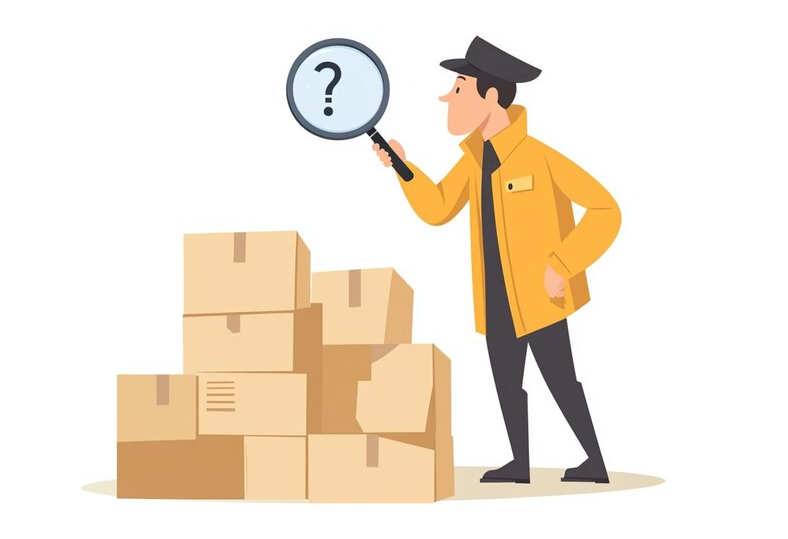How to Build Ideal Supplier Relationships: 10 Key Tips
-
Yuri Seleznev
Copywriter Elbuz
An amazing idea was planned, but something went wrong. Every businessman faces a similar situation, and in most cases it is aggravated by incorrect cooperation with suppliers. How to unravel this tangle of intricacies of business relationships? In this article, I will reveal 10 secrets that will change the way you think about interactions with your partners. After all, the success of the entire business depends on how you establish cooperation. Get ready—your journey into the world of efficient delivery starts right here!

Glossary
- 📝 Contract: a legally binding document that sets out the terms of cooperation between a businessman and supplier.
- 🥚 All Eggs in One Basket: a metaphor for risk in which all resources or efforts are concentrated in one place .
- 🤝 Bidding: The process of negotiating the terms of a deal in which the parties seek to reach a mutually beneficial agreement.
- ⏳ Deferred payments: the ability to postpone the date of payment for goods or services, which allows you to save money for a longer period .
- 🎁 Free samples: small samples of goods provided by the supplier to evaluate quality and make a decision on cooperation.
- 🎉 Promotional Products: Products that are used to promote a brand or company, such as souvenirs and merchandise.
- 🌍 Out-of-Region Suppliers: Companies located outside the local market that can offer unique products or competitive prices.
- 🏆 Master of Position: A position in which a businessman has significant influence over the terms of a deal due to good negotiations or relationships with a supplier .
- 🔍 Trust, but verify: A principle that emphasizes the importance of verifying information and conditions before fully trusting a partner.
- 📞 Communication with management: direct contact with the supplier's senior management, which can improve mutual understanding and speed up the resolution process .
Secret 1 - the importance of a competent contract
When I first encountered the issue of working with suppliers, I underestimated the importance of a well-drafted contract. I thought it would be enough to simply sign a standard framework agreement drawn up by the supplier. However, my experience has shown that this can lead to many problems in the future.

Over the course of several projects, I noticed that many companies are limited to only the basic points, forgetting about important aspects that can significantly affect the success of cooperation. I would never have thought that the scales in negotiations could tip so heavily in favor of the supplier, but that is exactly what happened on my first project.
Key points to include in the contract:
📅 Delivery times and responsibility for compliance with them. I recommend specifying not only deadlines, but also penalties for delay. For example, in one of my projects I added a clause requiring payment of a certain amount for each day of delay. This worked effectively and motivated the supplier to fulfill its obligations.
💰 Conditions for returning and replacing goods. I always include clear terms on what to do if the product turns out to be substandard. Together with the lawyer, we wrote down clear steps: how to notify, what documents to provide, and how to quickly receive a replacement.
🙅♂️ Responsibility for missed deadlines. In one case, I encountered a supplier who repeatedly missed deadlines. I added a liquidated damages clause, which helped contain him and prevent situations like this from continuing.
The importance of reading and analyzing each clause of the contract cannot be overestimated. I would advise you, before signing, to carefully read the text and highlight any points that may seem inconvenient to you. Discussing issues with your counterparty, such as payment terms or who is responsible for delivery, can significantly improve your position.
"Those who never delve into the details will be forced to put up with constant problems." — Aaron Gordon, Walmart purchasing expert.
What is this for? To create fair and mutually beneficial terms of cooperation. I always emphasize that openness and trust should be the foundation of your relationships with suppliers. And don’t forget that misunderstanding can result not only in financial losses, but also in reputational risks.
What to avoid when working with contracts:
| What to do ✅ | What not to do ❌ |
|---|---|
| Read the contract carefully | Sign without reading |
| Suggest adjustments | Ignore inconvenient moments |
| Set penalties | Leave everything at the discretion of the supplier |
| Specify clear return conditions | Implement “blank” agreements |
So, before you sign your next contract, I urge you to make sure it covers all the important aspects. This will help not only avoid many problems, but also significantly improve the terms of your partnership.
Remember that cooperation with suppliers is not a once-signed contract, but an ongoing process in which openness and honesty play a key role. I believe that if you take this issue seriously, you can avoid a lot of trouble and build successful business relationships.
To learn more about the complexities of working with suppliers, I recommend checking out our other articles on product suppliers, which will help you delve deeper into this topic and get even more useful tips.
Secret 2 - Diversification of supplies
Work in progress With suppliers, one thing became clear to me: diversification is the key to successful relationships and business stability. Let me share my experience, which will hopefully help you avoid common mistakes.

I started with several suppliers with whom I worked for a long time and seemed reliable . However, at some point I ran into a problem: one of them constantly missed delivery deadlines. I have often wondered, “Why do I insist on taking risks with only one partner?” After several such situations, I decided to change my approach and start working with several suppliers at the same time.
🎯 On my first try, I decided to try four different suppliers for the same product group. Each of them made their own unique products, and to test their reliability, I ordered trial batches. The results amazed me!
Product quality: One supplier provided the highest quality product quality, the other is below average. This immediately gave me a clear understanding of who is worth continuing cooperation with.
Delivery times: One of the suppliers was late with delivery took two weeks, which negatively affected our work. I've come to the conclusion that time is money, and you shouldn't expect much from people who don't value deadlines.
Pricing policy: I noticed that the availability multiple suppliers allowed me to actively negotiate price. I could confidently say, “Another supplier is offering me this cheaper,” and in most cases I received a discount.
💡 Now I always recommend to my colleagues not to limit themselves to one or two suppliers, but to try to work with as many as possible . This is really important for business. You not only minimize risks, but also get more opportunities. I positively appreciated the moment when, in addition to reliable suppliers, I found new ones, with whom the results of interaction exceeded all expectations.
“Multiple suppliers are not just a strategy, it is your salvation in conditions of market instability” - this is how I began to approach the choice. Diversifying my supply has really helped me increase my profits and improve my financial management strategy.

Here are some tips I learned in process:
- 🌟 Work with multiple suppliers and don't be afraid to try new options.
- 💬 Conclude contracts only after analyzing all the conditions and offers.
- 🔍 Always monitor quality and timing to easily find preferred partners.
I am confident that by following these guidelines you will be able to build more effective collaboration with suppliers. This will allow you to avoid the mistakes I encountered early in my career. You cannot trust everything to one company - remember this!
| What is useful to do | What not to do |
|---|---|
| Work with multiple suppliers | Limit to just one or two |
| Regularly analyze the quality of supplies | Ignore supply problems |
| News negotiate prices and terms | Ignore competition |
Every lesson I learned became a building stone for me in creating a strong supply base. I have every confidence that you will be pleasantly surprised at how diversification can transform your business! If you're interested in the topic of shipping, check out how to arrange free shipping for more insight.
Secret 3 - Learn to Bargain with Suppliers
When I was just starting my business and working with suppliers, one common mistake I made was simply choosing prices from the price lists, ignoring the fact that they were flexible. One day I decided to change my approach. I became convinced that prices should be treated as a starting point for further negotiations.

Now I can confidently say that the most important aspect of working with suppliers is ability to justify your requests for discounts and bonuses. I always stick to a few proven techniques that will take your collaboration to the next level.
💼 Proven methods to get discounts
Volume Orders: I regularly use the high volume purchasing approach. For example, when I purchased ten boxes of one product, I did not hesitate to ask for the eleventh box as a gift. It is simple and effective, because suppliers are interested in large transactions.
Comparison with competitors: I never miss out the opportunity to mention that my competitors have a similar product that costs less. This creates additional pressure on the supplier. I directly stated: “I would like to work with you, but your competitors offer better conditions.” Combining the phrase with praise that I appreciate our cooperation helped me repeatedly receive discounts.
Additional bonuses: I always ask about possible additional bonuses, such as free shipping or commercial equipment. For example, during one of my deliveries, I learned that a number of suppliers could offer me display equipment. This not only reduced my costs, but also strengthened our cooperation.
Payment methods: I noticed that many Suppliers respond very positively to cash payments upon receipt of goods. This builds trust, and I have often used this approach, which has even allowed me to lower prices.
🔑 Useful tips
- I would always advise to legally include additional conditions regarding discounts for large volumes in contracts.
- Remember to have open and honest negotiations. I always provided full information about my needs, which helped providers better understand how they could help me.
"Bargaining isn't just about asking for a lower price, it's about discussing the benefits that both parties receive." - David Allen, expert consultant on time management and personal productivity.
📈 Case studies
In one retail project, I was able to significantly reduce purchasing costs when I applied the methods described above. I prepared my arguments and eventually achieved a 15% discount on regular deliveries. This has dramatically improved my financial situation and removed a significant burden from my budget.
| Things to do | What to avoid |
|---|---|
| Give reasons for your requests | Buy at price without negotiations |
| Request additional bonuses | Ignore competitors |
| Work with volumes | Miss cash payment |
I hope my story helps you change the way you negotiate with suppliers. If you haven't already been paying attention to pricing and discounts, it's time to rethink your strategies. And remember that the ability to interact with partners increases your chances of success!

Secret 4 - discuss long-term payment terms
When I was just starting out in business, there was a situation in my experience where I collaborated with one supplier who provided us with food. I noticed that the initial payment terms were always only five to ten days. This short period of time often put us in difficult situations, especially when we had to pay other expenses. Not knowing what to do, I decided to build a relationship with the supplier, which subsequently changed our financial situation.

✔️ I started with the fact that after six months of working with the supplier, I initiated conversation about the possibility of increasing payment terms. Why did I do this? I was well aware that the ability to defer payments could dramatically increase our turnover. Yes, it sounds risky—I'd end up in debt—but it's times like these when it's worth remembering that in business, sometimes you have to take risks to gain the flexibility you need.
📊 The orders we placed in amounts of several million did not always require immediate payment. At the time of payment, we already had a good supply of goods in our warehouse. This provided us with sustainable revenue and allowed me to plan the next steps in the business with more confidence.
Pros of discussing deferments
- Flexibility in financial management. Discussing long-term prospects, I already had a reputation behind me as a paying client.
- More supplies. We could increase the range without the need for immediate investment. Thanks to the periodic increase in products in the catalog, I received more sales opportunities.
- Cash flow management. If I had not taken this path, I might have found myself in a difficult situation today.
🤔 To avoid negative aspects, it is worth remembering an important principle: never overload yourself with goods. I would recommend starting with small volumes and gradually increasing your purchases. This will give you room to maneuver if unforeseen circumstances arise.
Summary and Conclusions
Don't be afraid to ask for payment deferrals from your suppliers once you've established a trusting relationship. I can confidently say that this is a strategic option that can enhance your financial capabilities and ultimately turn the situation in your favor.

| What's useful | What to avoid |
|---|---|
| Look for opportunities to negotiate terms after several months of work | Don't overload yourself with goods |
| Create trusting relationships with suppliers | Don't put off payments until the last moment |
| Manage your cash flow consciously | Don't ask for a deferment if your reputation |
So, don't forget: talking about deferments is not just a formality. This is exactly the step that can radically change the rules of the game in your business. How often have you addressed these issues with your suppliers? Maybe it's time to find a balance?
Secret 5 - how to get free product samples
As I began my journey into the world of business and supplier management, I quickly noticed that one of the most effective ways to build relationships was by asking for free product samples. This not only gives you the opportunity to evaluate the quality of the product, but also helps build trust in the supplier.

Some manufacturers, especially in the food industry, are eager to promote their new product and use this practice to attract customers. I remember well how one of my local suppliers invited me to taste their new sausages before I decided to make a large purchase. It was a real revelation! I was convinced of the high quality of the product, and, as a result, was able to increase purchase volumes. 🎉
Why is it important to ask for samples?
Quality check: Only after trying the product can you form a real idea of its quality. I remember one supplier sent me several samples of their products, and one of them was not as expected. I was able to avoid a costly mistake by not purchasing.
Establishing trust: Requesting free samples can be viewed as a step towards mutual benefit. For example, asking for a sample shows the supplier that you are interested in a long-term relationship. I noticed that after several similar requests, suppliers began to better understand and respect my needs.
Testing on target audience: You can use received samples for testing among your clients. From time to time we hold tastings of new products in our store, and this is how I received feedback, which later helped me choose the best items to purchase.

I I recommend that you always be interested in the possibility of obtaining samples. However, it is worth remembering to be sensitive and correct when communicating with suppliers. Here are some guidelines to help you through this process:
- Make your request clear and respectful: To make your request seem natural, I would suggest writing a few short sentences explaining your interest in a specific product.
- Point out potential benefits for the supplier: For example, we always mention the possibility of further cooperation if the sample is successfully tested. This creates additional incentives for the supplier to provide the sample.
"Never miss an opportunity to test products, especially if they could become part of your core range." - Inaa Simonenko, expert at ATB-Market.
After applying this approach, I noticed a noticeable an increase in the volume of purchases and receiving positive feedback from customers. It would be a good idea if you include tasting in your strategic activities, and also share the results of this work in your groups on social networks.
Results:
| What to do | What not to do |
|---|---|
| Respectfully ask for samples | Ignore product quality |
| Use samples for testing | Do not share received information |
| Tell the result to the supplier | Ignore the provided options |
So, I highly recommend that you use product samples as a tool to improve the quality of your offerings and improve your relationships with suppliers. This will not only strengthen your cooperation, but will also increase customer confidence in your business.
Secret 6 - don't hesitate to ask suppliers about small details
While working with suppliers, I noticed how important it is not to miss the opportunity to gain additional benefits. I remember one day I approached one of my suppliers and simply asked, “Do you have any promotional materials that you could add to each shipment?” I was pleasantly surprised when he responded positively and offered a variety of small items - from pens and mugs to calendars and logo T-shirts. Here's how I used this opportunity.

How to Use Promotional Trivia in Your Business
Having found myself with such advertising products, I decided to use it to increase customer loyalty. I often used mugs and pens to reward active social media followers. Bonuses in the form of small gifts helped attract attention and maintain interest in my products. Every time I held a giveaway, the likes and comments in the groups increased, and I did not lose anything - all these souvenirs came at no additional cost.
👕 Here are some ideas I used:
- Rewarding loyal customers: each order over a certain amount was accompanied by a small gift.
- Social media giveaways: I organized contests where you could win products with a logo, which certainly increased reach and attracted new subscribers.
- Promotions: I used these little things as elements in complex promotions, thereby stimulating sales.
📈 I was amazed when I noticed that the increase in the use of promotional materials led to an increase in customer feedback. This was an absolute victory! Open product inquiries increased sales by 20% within the first few months.
No matter how it sounds, little things like this can go a long way in building your brand and connecting with your customers. I've often received positive feedback on how a simple mug or pen with a logo on it has brought customers back.

Best practices for interacting with suppliers
Here are a few guidelines that I think are worth keeping in mind when working with suppliers:
- Be open: Don't be afraid to ask questions - you may be offered opportunities you never thought possible! For example, I completely accidentally learned about the possibility of receiving discounts on subsequent orders. Simply asking, "can you give me a discount?" — I saved a considerable amount.
- Explore your options: try different options for using the provided materials and promotions. I literally experimented, observing the reaction of clients to each new idea.
- Reach out to suppliers regularly: maintain contact not only in times of crisis, but also to ensure you are always available aware of new ideas and proposals.

| Helpful Steps | Don'ts |
|---|---|
| Request promotional trivia | Ignore feedback option |
| Conduct sweepstakes and contests | Do not use advertising materials |
| Establish personal contact with suppliers | Forget about past deliveries |
Using this approach, I was able to not only improve the quality of my service, but also make friends with my suppliers, which let them know that I valued them. And this, in turn, brought me incredible results.
In summary, I believe that you should not underestimate the power of little things in business. Take every opportunity to build relationships with suppliers, be open in your negotiations, and be creative with your promotional materials. This will not only help increase customer loyalty, but also grow your business.
Secret 7 - Supply optimization: choose long-distance but profitable routes
I have more than once encountered a paradox when delivery of goods from Kyiv turned out to be more profitable than purchasing them from local suppliers. An example from my experience: several years ago I worked on a supply chain project for a large retail store. We were looking for suppliers located only 100 kilometers from the capital, and it would seem logical to choose those who are closer. But it turned out that local suppliers offered higher prices and longer delivery times.

I realized that for successful work you need to move away from the usual stereotypes and look for the maximum profitable solutions, even if this means interacting with suppliers from other regions. I focused on analyzing the following factors:
- Price Comparison: I collected suggestions from both local and from Kiev suppliers. As a result, I was pleasantly surprised - prices for some goods from the capital were up to 30% lower.
- Delivery times: One of the Kyiv suppliers guaranteed delivery in 3 days, while the local one - only after a week. Fast delivery has often been critical to our business.
- Quality of goods: I also carried out a comparative analysis of the quality, and in most cases the Kiev goods turned out to be better, which further justified transportation costs.
Now I can confidently say that it is important not to limit yourself to only those suppliers who are closer. I suggest entrepreneurs and purchasing managers contact suppliers and study their offers and conditions. Don't be afraid to experiment and expand your horizons.
Here are some tips that may help you in this process:
- Analyze the market: Don't forget to collect data on prices and terms of delivery from various suppliers. This will help you make an informed choice.
- Consider shipping costs: In some cases, shipping from distant regions may be more cost-effective than shipping locally.
- Check return policy: Make sure you have the option to return items if they don't meet your expectations.

Become proponent of a proactive approach. It’s better to spend time researching the market once than to regret later about high prices and long delivery times.
| What is useful to do | Don'ts |
|---|---|
| Compare prices and delivery times from different suppliers | Limit yourself to local partners only |
| Check the quality of goods before concluding a contract | Do not accept the first price offered |
| Develop long-term relationships with suppliers | Ignore the advice of experienced colleagues |
So, when choosing the right suppliers, it is important to be able to see outside the box. Sometimes long journeys can lead to better quality and better conditions. I encourage you to put this approach into practice and see how your interactions with suppliers change.
Secret 8 - Manage Your Conditions
Working with suppliers, I have always adhered to the principle that it is I who should dictate the terms. I remember early in my career, I constantly tried to please my suppliers and followed their rules, but I soon realized that this was not the best approach. Suppliers are truly more interested in you than you are in them, and it is important to let this awareness guide your relationship.

What did I do?
When I first started my business, my volumes were small, and therefore I felt insecure at the negotiation level. I often asked myself the question: “How can I get suppliers to pay attention to me?” But as the speed increased, everything changed. I noticed that the larger your volumes, the bolder you can communicate with suppliers. I began to confidently formulate my terms and offer mutually beneficial deals.
Case Study
Once, when I was working with a small supplier, we were discussing the terms of discounts for bulk purchases. I suggested that the discount increase as the volume of purchases increases. This not only helped me, but also them, as they became more interested in working with me and meeting my terms. Since then, I have always included clear criteria and expectations in the negotiation process, allowing myself to lead the discussion more confidently.
Helpful Tips
Here are some tips I can give you from my experience:
- 💼 Set clear criteria. Determine in advance what you want from the supplier and what terms are acceptable to you.
- 📈 Use your volume as a springboard. Conduct an analysis of your purchases and how much they may grow in the future.
- 🤝 Build relationships. Suppliers tend to focus on long-term relationships. I constantly kept in touch and held meetings with key suppliers.
- 🔄 Be flexible but demanding. If the supplier cannot meet your conditions, consider whether you are willing to offer something in return.
"Dear partners, I propose to consider changes in the terms of cooperation that may be beneficial for both parties," — I often say during negotiations.
As I became more confident in my requirements, I noticed that suppliers began to change. They started offering me favorable conditions and quality products.

What to do and what to avoid
| What to do | What to avoid |
|---|---|
| Set clear conditions | Follow the terms without question |
| Work in partnership | Ignore their capabilities |
| Analyze volumes | Focus only on a low volume |
| Maintain an open dialogue | Delay negotiations |
Remember, establishing supplier relationships is a two-way process, and it's up to you It depends on how these relationships will be built. Don’t be afraid to show persistence and confidence, and the result will definitely please you!
Secret 9 - Open and check on site
When I first started working with suppliers, I didn't have a clear course of action, and I remember how amazed I was one day when I received a shipment of goods with a huge number of errors. The boxes arrived, the paperwork was signed, and then I discovered that half the items were missing or defective. It was a serious lesson.

Since then, I have made a decision: every time I receive an item, I'm doing a thorough check. I open boxes, count and weigh items. And here's what I learned from my experience:
- Open the boxes on the spot: This allows you to identify problems immediately, and not after a few days, when the supplier is already far away.
- Count each item: Quantity errors are very common. I remember a time when there were two units missing from the box. It later turned out that this was a system glitch at the supplier's warehouse!
- Weigh the product: Sometimes it can be difficult to visually determine the defect, but the weight will immediately tell you if something is wrong . I remember one time I noticed a difference in weight between the expected and delivered goods. This saved me from further losses.
If you notice any discrepancies, please do not hesitate to accept the goods. I recommend drawing up the appropriate documents: rejection certificates and return invoices. This is very important, since it is the documents that can become the basis for negotiations with the supplier about the return or exchange of goods.
Helpful Hints:
- Document all deviations: Record every bug you find. This will help you in the future if you need to contact the supplier.
- Communication with the supplier: If a problem is discovered, I always strongly recommend discussing it openly with the supplier. Most often, they meet halfway and are ready to resolve issues.
- Check the documents: Pay attention to what is indicated in the delivery notes. Always check them against the actual item received.

To summarize, there are several key points , which are worth considering:
| What to do | What not to do |
|---|---|
| 👌 Open and inspect goods on site | ❌ Do not accept defective or incomplete goods |
| 📄 Document all identified inconsistencies | ❌ Do not ignore errors in documents |
| 🤝 Discuss issues openly with your supplier | ❌ Don't be afraid to assert your rights |
By following these recommendations, you will significantly improve your relationships with suppliers and minimize risks in the supply chain. Use these simple yet effective techniques and I am confident that you will be able to reach new heights in your business.
Secret 10 - have a constructive dialogue with the supplier's management
When I first started my business journey, I was sure that communication with suppliers could be simplified by interacting only with managers and sales representatives. However, with experience, I have come to the conclusion that in order to achieve truly favorable conditions, you should strive to communicate with the management of the supplier company. I can say with confidence that this approach helps to significantly increase the efficiency of cooperation.

When I interacted with one of our large suppliers, their managers were always polite and are ready to discuss orders. However, as soon as it came to the question of discounts or changes in conditions, they confidently refused, citing their limitations. I realized that talking to managers is a kind of “nonsense” that affects our business relationships. So over time I decided to change my strategy.
I began to carefully prepare for meetings and conversations, taking time to build relationships and establish myself as a reliable partner. After several months of working with them, I suggested a meeting with their management to discuss opportunities for improved collaboration. I have already learned that they value sellers who place small but regular orders.
✏️ Here are a few steps I took to set up a meeting with management:
- I analyzed my orders over the past months and showed good results.
- Compiled documents with statistics showing growth in supply volume and timely payments.
- Reported his readiness to increase purchase volumes if accounting would be more flexible.

After our meeting, the head of the supplier company not only expressed his appreciation for the work done, but also offered me a discount on future orders. This was a big step towards strengthening our relationship. I understand that by providing stability, I value their business, not just my own.
📝 Here are some additional recommendations:
- Be Consistent: Regular orders, even small ones, make you a more valuable customer.
- Build trust: Share your experience and plans for development to show that you are serious.
- Discuss issues openly: Don't be afraid to ask about the possibility of discounts or special offers.
As I've learned, the key to successful supplier relationships is to build trust step by step and demonstrate your value as a partner. I strongly recommend that you contact company leaders so that, albeit difficult, but surely move towards mutually beneficial conditions.
| What's useful | What not to do |
|---|---|
| Communicate with management | Limit to managers only |
| Provide performance data | Don't ignore your achievements |
| Create conditions for long-term cooperation | Be inconsistent in orders |
Use these techniques to make your interactions with suppliers more productive. I encourage you to actively look for opportunities to make changes in your communication with them. View every meeting as an opportunity for growth and improvement.

Experience Oysho
Client Description
Oysho is an international a chain of stores specializing in the sale of women's underwear, homewear and clothing for active sports. The brand was founded in 2001 in Spain and has since become part of the Inditex group, which operates a number of well-known fashion brands such as Zara, Massimo Dutti and Bershka. The main objective of the company is to create comfort and style for women, offering a variety of collections for various needs and events.
.png)
Goals and objectives
As it expanded its presence in international markets, Oysho was faced with the need to establish effective relationships with suppliers to ensure high quality products and competitive prices. The main goals included:
- 📈 Improving the efficiency of interaction with suppliers.
- 💰 Reducing the cost of purchasing goods.
- 🌍 Expansion of the range through new suppliers from different regions.
Main problem
The main problem the company faced was the lack of reliable suppliers, able to quickly respond to changes in consumer demand. This resulted in delivery delays and insufficient inventory levels, which negatively impacted customer satisfaction.
Characteristics of the target audience
Target audience Oysho is modern women aged 18 to 35 who value style and comfort. They actively follow fashion trends and strive for high-quality and affordable products. Interests of this audience include:
- 🛍️ Buying the latest fashion.
- 🧘♀️ Participation in an active lifestyle and sports.
- 🏡 Create a cozy home with stylish loungewear.

Key points for potential clients
- Product quality: constant quality control at all stages of delivery.
- Flexibility: Ability to quickly adapt to changes in consumer preferences.
- News and promotions: creating current offers that will be of interest to customers.
Specific results
As a result of the implementation of a system of effective interaction with suppliers, Oysho was able to achieve significant results:
- 📊 Increase in delivery speed by 30%.
- 💼 Reducing the cost of purchasing materials by 15%.
- 🏆 Increase customer satisfaction by 25%.
"We have seen significant improvement and growth in productivity and sales figures, allowing us to strengthen our position in the market" ,” noted Maria Soledad Valasquez, purchasing director of Oysho.
| Parameter | Result |
|---|---|
| Increase in delivery speed | 30% |
| Reduced material costs | 15% |
| Increased customer satisfaction | 25% |
These numbers highlight the importance of building strong supplier relationships to succeed in the fashion industry, which is certainly one of the secrets of successful work with suppliers.

Often FAQs on the topic: How to establish ideal relationships with suppliers - 10 key tips
What is the most important aspect in working with suppliers?
The contract is the basis of successful cooperation, so it is important to draw it up correctly.
Why shouldn't you keep all your eggs in one basket?
Supplier diversification reduces risk and provides stability in case of unforeseen circumstances.
How to bargain with suppliers?
It is important to be confident in your needs and not be afraid to negotiate terms that benefit both parties.
How to ask for a deferred payment from a supplier?
You need to justify the request, pointing out the benefits for both parties and discussing possible options for cooperation.
Can I request free product samples?
Yes, many suppliers will be willing to provide samples to help you evaluate their products.
What are promotional materials and merch from suppliers needed for?
Promotional materials can help you learn more about your products and attract customers to your services.
Should we consider suppliers from other regions?
Yes, this can open up new opportunities and provide more competitive prices.
How to become the master of the situation in negotiations with a supplier?
Prepare market information and potential offers to negotiate with confidence.
Why is it important to trust but verify?
Checking information and terms of cooperation helps to avoid misunderstandings and unpleasant situations.
What is the best way to communicate with the management of the supplier company?
Directly only, to avoid misunderstandings and establish closer relationships.
Thank you for reading! You are now more experienced! 🎉
You know you're now on your way to successful work with suppliers! Each of these secrets is your personal key to new opportunities. I remember how I once changed my approach to negotiations and concluded a deal that brought 30% sales growth in six months. Don’t forget, successful cooperation is not only about prices, but also about trust and mutual understanding. So go ahead and turn your knowledge into action! 🛠️ I look forward to your comments - what do you think about this?

- Glossary
- Secret 1 - the importance of a competent contract
- Secret 2 - Diversification of supplies
- Secret 3 - Learn to Bargain with Suppliers
- Secret 4 - discuss long-term payment terms
- Secret 5 - how to get free product samples
- Secret 6 - don't hesitate to ask suppliers about small details
- Secret 7 - Supply optimization: choose long-distance but profitable routes
- Secret 8 - Manage Your Conditions
- Secret 9 - Open and check on site
- Secret 10 - have a constructive dialogue with the supplier's management
- Experience Oysho
- Often FAQs on the topic: How to establish ideal relationships with suppliers - 10 key tips
- Thank you for reading! You are now more experienced!
Article Target
provide readers with useful tips on working with suppliers
Target audience
small and medium-sized businesses, entrepreneurs, purchasing managers
Hashtags
Save a link to this article
Yuri Seleznev
Copywriter ElbuzI unravel the secrets of successful online store automation, plunging into the world of effective solutions and secrets of online business - welcome to my virtual labyrinth, where every line is the key to automated success!
Discussion of the topic – How to Build Ideal Supplier Relationships: 10 Key Tips
10 important tips and secrets that will help businessmen improve cooperation with suppliers.
Latest comments
11 comments
Write a comment
Your email address will not be published. Required fields are checked *




















Юрий Селезнёв
In fact, the best strategy is to communicate openly and honestly with suppliers. Without this, not a single secret will work! What examples of successful cooperation do you have?
Oliver Smith
I agree, Yuri! I had a case where we improved our relationship with a supplier through regular meetings. This helped reveal a lot of nuances! What do you think are the most important topics to discuss in such meetings? 🌟
Anna Müller
Interesting approach, Oliver! I sometimes send thank you notes to suppliers for their work. This creates a positive climate. I think little things like this are important! 😊
Luis Garcia
I agree, Anna! But sometimes touching the supplier’s hand to show the importance of our work is also good. I usually say: "We are a team!" 💪
Zofia Nowak
That's right, Louis! But don't forget about the documentation. Clear contracts help avoid many disputes. How do you negotiate terms so that there are no misunderstandings?
Grumpy Old Joe
How much can we talk about amazing suppliers? All these 'secrets' are nothing more than buzzwords. You just need to do your job and not complicate life. 🥱
Nadia Petrenko
But Joe, supplier relationships can make or break a business! I had a case where we lost a major contract due to lack of communication... it was tough. 😬
Tomasz Kowalski
I agree with Nadya! We introduced new conditions simply based on feedback and improved the delivery system. This greatly speeded up the process. Working with suppliers is a long term game! 🔄
Marie Dupont
We use QR codes to exchange data with suppliers, it is very convenient and saves time! Has anyone else tried this? 📲
Юрий Селезнёв
Great idea, Maria! Technology can greatly simplify processes. Can we discuss how best to integrate these innovations in the future?
Oliver Smith
I would say that the rules of cooperation also need to be constantly reviewed. How do you adapt your approach depending on new challenges in the market?